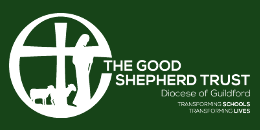Year 6
Year 6 resources for families
Meet the teacher 2023 - Click here to view the powerpoint presentation.
Class Timetables
Curriculum Maps
To access the Curriculum Maps, please click the links below.
Year 6 Curriculum Map summer 2024
Year 6 Curriculum Map spring 2024
Year 6 Curriculum Map autumn 2023
Reading Ramble
To access the autumn term Reading Ramble, please click the link below.
Year 6 Reading Ramble summer 2024
Year 6 Reading Ramble spring 2024
Year 6 Reading Ramble autumn 2023
Mathematics - Calculation policy
If you would like to view the schools calculation policy please click here.
About Year 6
Year 6 is the year in which the children have the chance to take more responsibility for themselves as well as develop their role as independent learners.
In the Autumn Term we study the Ancient Egyptians, looking at how the River Nile influenced the development of the country, what the structure of beliefs involved, (looking at the different pharaohs, gods and goddesses), the afterlife and process of mummification and life in Ancient Egypt. We also make a direct comparison between Ancient Egyptian homes and clothes to what we use in the modern day. In D.T. we look at Egyptian art and the rules relating to it and canopic jars. In addition to this, we will make a Museum visit which secures knowledge about mummification and allows the children to handle genuine artefacts from the period.
Our Science involves looking at living things and their habitats.
In the Autumn Term in R.E. we explore the following learning questions:
Christianity: How is God Three – and yet One?
Christianity: What do Christians believe about the Messiah – and why is it good news?
In the Spring Term, we move onto a study of Rivers. There is map work on oceans, seas and rivers as well as a close look at the water cycle and flooding. The making of dragon boats has proved a popular DT project! We visit London and take a boat along the River Thames in order for the children to see how the waterfront changes.
Science work covers electricity, focusing on safety and learning about series and parallel circuits. The children will also test for electrical conductors and insulators. In this term, we also look term are at classification of plants and animals.
In R.E. during the Spring Term, we explore further questions:
Hinduism: Why should Hindus lead a good life?
Christianity: For Christians, what difference does it make to belong to God’s kingdom?
In the final Summer Term, our topic is Being Human during which we look at our senses, teeth and healthy eating, study the organs of the human body, drugs and alcohol and sex education. We also have the chance to design and cook a pizza in D.T.
In R.E. during the summer term, we study one final question and tie our learning for the year together with a thematic unit:
Buddhism: What is the 'Buddhist' way of life?
Thematic: Who am I and where do I belong?
|
It is is also the term in which we have the Year 6 production and residential trip to a PGL centre where we can safely experience all that an outward bound style of holiday can bring. |
In English, we are following the National Curriculum and we aim to cover a broad range of topics which will include:
· suspense writing, dilemmas, biographies and autobiographies, play scripts, newspapers and poetry in the autumn term;
· formal letter writing, discussion and debate, mystery stories, planning and predicting, diary and instruction writing in the spring term; and
· recount writing, play scripts, poetry and short stories in the summer term.
In Maths, we follow the National Curriculum units:
· number and place value;
· addition, subtraction, multiplication and division;
· fractions (including decimals and percentages);
· ratio and proportion;
· algebra;
· measurement;
· geometry – properties of shapes; and
· geometry – position and direction.
The Year 6 pupils assume many responsibilities such as having the chance to become House Captains and Vice Captains, prefects, be on one of the school committees and also the opportunity to take part in the Year 6 Production at the end of the year.
A very full year, I think you’ll agree!
The Year 6 team

